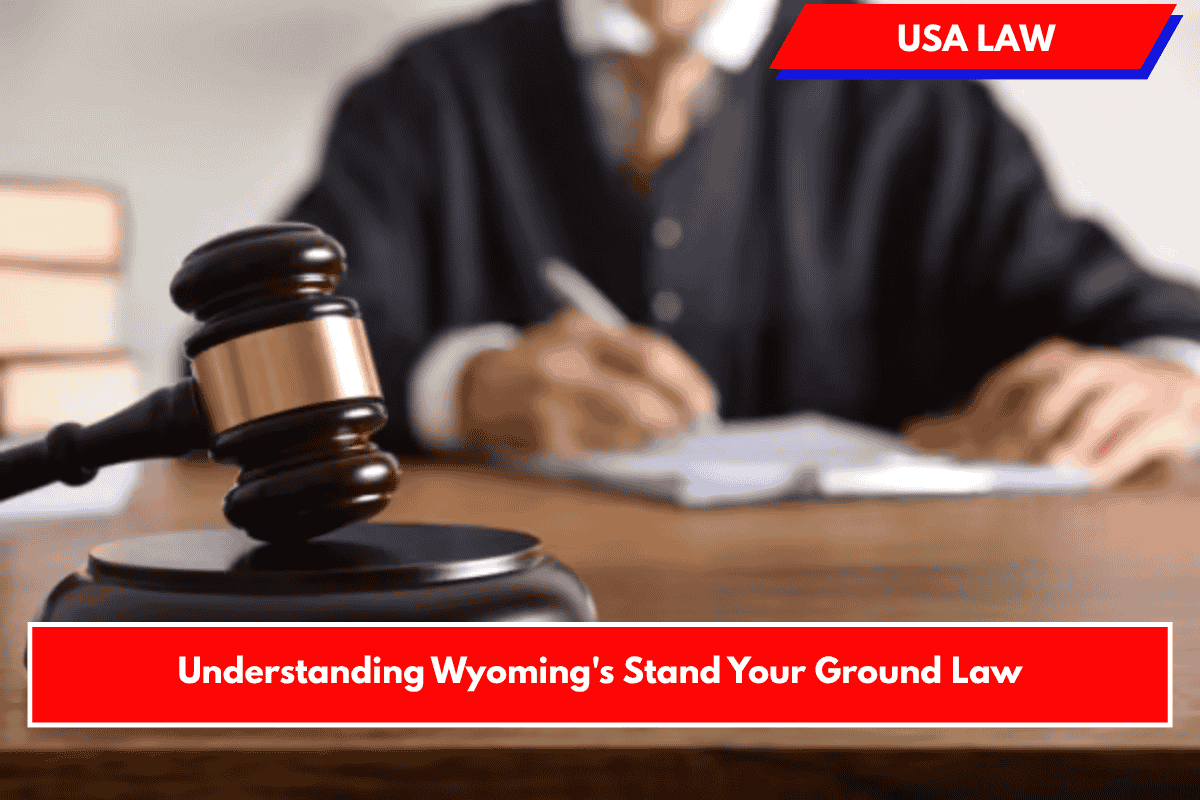Wyoming’s Stand Your Ground law, codified under Wyoming Statute § 6-2-602, provides broad legal protections for individuals who use force, including deadly force, in self-defense without the obligation to retreat from a threatening situation, as long as certain conditions are met.
Key Features:
- No Duty to Retreat: Individuals are not required to attempt to escape or retreat before using force in self-defense, provided they are lawfully present and not engaged in illegal activity.
- Where It Applies: The law applies anywhere a person is lawfully present—this includes homes, vehicles, and public spaces.
- Reasonable Belief Standard: The use of force is justified only if the person reasonably believes it is necessary to prevent imminent death, serious bodily injury, or the commission of a violent felony.
- Immunity: If the use of force is found to be justified, the individual is immune from both criminal prosecution and civil liability for injuries or damages resulting from the incident.
- Not for Aggressors: The law does not protect those who provoke or instigate the confrontation. If a person is the initial aggressor, they cannot claim Stand Your Ground as a defense.
Detailed Provisions
Castle Doctrine Inclusion:
Wyoming’s law also incorporates the Castle Doctrine, which specifically applies to defending one’s home or habitation. If an intruder unlawfully and forcibly enters a home, the resident is presumed to have a reasonable fear of imminent peril and may use defensive force, including deadly force, without retreating.
Proportionality and Reasonableness:
The force used must be proportional to the threat faced. The law requires that a reasonable person in similar circumstances would judge the force necessary to prevent injury or loss.
Legal Process and Evidence:
Individuals asserting Stand Your Ground should promptly contact law enforcement, provide a detailed account, and gather evidence (such as witness statements or surveillance footage) to support their claim. If the defense is unsuccessful, criminal charges or civil lawsuits may still result.
Summary Table
| Feature | Wyoming’s Stand Your Ground Law |
|---|---|
| Duty to Retreat | No |
| Applies in Public | Yes |
| Applies at Home | Yes (Castle Doctrine included) |
| Reasonable Belief | Required |
| Immunity | Criminal and civil |
| Provocation | Disqualifies defense |
Practical Implications
- Empowerment: Wyoming residents can defend themselves or others from imminent threats without the obligation to retreat, as long as their response is reasonable and they are not the aggressor.
- Immunity: Justified use of force provides protection from prosecution and lawsuits, but the burden may fall on the defender to prove the reasonableness of their actions.
- Limitations: The law does not protect those who provoke violence or use excessive force beyond what is necessary to prevent harm.
Wyoming’s Stand Your Ground law grants significant legal protections for self-defense, removing the duty to retreat and providing immunity from prosecution and civil suits when force is justifiably used. However, these protections are contingent on the defender acting lawfully, reasonably, and not provoking the confrontation
Sources
- https://thewrangler.com/understanding-wyomings-stand-your-ground-law/2025/06/07/
- https://bestshotatfreedom.com/a-guide-to-stand-your-ground-in-wyoming/
- https://giffords.org/lawcenter/state-laws/stand-your-ground-in-wyoming/
- https://www.steventituslaw.com/blog/is-wyoming-a-stand-your-ground-state/
- https://www.steventituslaw.com/blog/navigating-self-defense-laws-a-guide-for-defendants/











